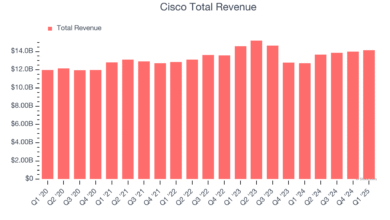Canada Digital Services Tax: Recent Developments and Impacts

The recent development surrounding Canada’s digital services tax has garnered significant attention in the realm of Canada tax news. Originally designed to impose a 3% levy on both foreign and domestic tech companies, the tax aimed to address the growing frustration over large tech firms generating substantial profits from Canadian consumers without adequate taxation. However, with U.S. President Donald Trump announcing the termination of all trade discussions with Canada, the Canadian government made a swift decision to rescind the digital services tax. This pivot may have been aimed at fostering a more collaborative climate as Canada and the U.S. engage in trade negotiations. As we delve deeper into the implications of this policy change, it is crucial to understand how it intertwines with broader Canada-U.S. trade negotiations and the economic landscape both nations navigate.
In the evolving landscape of international taxation, the recent news of Canada’s withdrawal from its previously proposed technology levy highlights the complex interplay between digital taxation and trade relations. This policy, aimed at taxation of online services provided by major corporations, underscores the significance of equitable tax policies amid rising digital economies. While the idea of a digital levy was initially embraced to ensure that tech giants contributed their fair share, its rescission speaks volumes about the delicate balancing act between fiscal policy and diplomatic relations, especially during critical Canada-U.S. trade talks. The fallout from this decision calls for an examination not only of digital services tax implications but also of how it might reshape future tax frameworks as Canada seeks to navigate its economic ties with the United States.
Impact of Canada’s Digital Services Tax Rescind on U.S.-Canada Trade Relations
The rescindment of Canada’s digital services tax marks a pivotal moment in U.S.-Canada trade negotiations, following the recent cessation of talks by President Trump. This decision underscores the delicate balance that Canada must maintain as it navigates its economic relationship with its southern neighbor. The move reflects a strategic shift aimed at fostering a favorable economic environment conducive to negotiations, particularly with the pressing goal of reaching a trade agreement that benefits both nations. U.S. tech giants, including those like Amazon and Google, who were poised to be impacted by the tax, could find some respite as discussions resume.
However, the implications of this decision extend beyond just the immediate trade talks. It signifies Canada’s recognition of the need to align its policies with diplomatic engagement strategies, especially in light of the strong opposition expressed by U.S. officials. The digital services tax, which was expected to generate significant revenue for Canada, has now taken a backseat to prioritize higher-stakes negotiations that could define economic collaboration going forward.
Recent Developments in Canada-US Trade Negotiations
The unexpected decision by Canada to rescind its digital services tax has sparked renewed interest in the ongoing trade negotiations with the U.S. President Trump’s abrupt termination of trade discussions came as a shock and greatly impacted Canada’s approach. Prime Minister Mark Carney’s statement, highlighting the importance of a comprehensive trade agreement, suggests that Canada is keen on rebuilding a collaborative dialogue with the U.S. Several factors may contribute to this re-engagement, including economic stability and mutual interests in security and prosperity.
As both nations work towards renewing talks, the underlying issues surrounding tariffs and trade barriers still pose significant challenges. The ability for Canada to navigate its fiscal policies in a way that aligns with U.S. priorities will be critical. The upcoming discussions could set new precedents in not only bilateral trade relations but also in matters concerning global trade policies. With the backdrop of Trump’s trade policies and the need for a favorable economic agreement, the future of U.S.-Canada trade remains formulaic and complex.
Analysis of Digital Services Tax Implications on Tech Firms
With Canada previously enacting a digital services tax that imposed a 3% levy on tech giants, the implications of its withdrawal carry weighty significance for the affected companies. U.S. Treasury Secretary Scott Bessent’s critique of the tax points to perceived inequities experienced by American businesses in Canada. The digital services tax not only raised questions about fairness but also highlighted the widening gap in international taxation standards as digital economies continue to evolve. Discussions surrounding equitable taxation of digital services will remain a hot topic in future negotiations.
Moreover, the rescindment of this tax allows tech firms to redirect their focus and strategies back to growth rather than compliance with retroactive tax obligations. The potential loss of approximately $2 billion—specifically from the tax that would have impacted companies like Google and Meta—shows the financial repercussions of the initial tax proposal. Moving forward, tech firms will be keenly monitoring the unfolding negotiations and any subsequent tax policy formulations that may emerge.
Future of Canada-US Economic Relations After Tax Rescind
Canada’s decision to retract the digital services tax sets a tone for potential cooperation between the two countries as they look towards the future of economic relations. This strategic move is not just about tax policy; it signifies an overarching aim to foster a more congenial trade environment that could benefit both sides. As both nations stand to gain significantly from a strengthened trade relationship, the focus will now shift to the broader implications of their economic policies and bilateral agreements.
In addition, Canada’s commitment to entering negotiations marks a willingness to compromise on contentious issues, which serve as a prerequisite for establishing an enduring economic partnership. The outcome of these negotiations could lead to a more stable and predictable trading environment, minimizing disruptions that would arise from unilateral tariffs or taxes. As both Canada and the U.S. work together to flatten the trade barriers, the hope for a balanced and mutually beneficial resolution remains paramount.
Canada’s Strategic Tax Policies Amid Trade Tensions
Canada’s recent actions regarding the digital services tax represent an overarching strategy to navigate the turbulent waters of international trade relations. Ottawa’s commitment to pause the implementation of the digital services tax resonates deeply within the context of its relationships with major trading partners like the U.S. As trade tensions escalate, understanding how Canada can leverage fiscal strategies while ensuring economic growth will be central to ongoing discussions within trade negotiations.
The pause in tax collection provides both the Canadian government and American stakeholders the necessary breathing space required to prepare for complex dialogues ahead. Additionally, it emphasizes Canada’s dedication to participating in broader discussions focused on global standards for digital taxation. This shift not only signifies potential gains in trade but creates an opportunity for both nations to collaboratively address and mitigate the tensions surrounding taxation of digital services.
Role of Digital Services in Global Trade Dynamics
The digital economy holds a substantial role in shaping global trade dynamics, especially in the context of the recent rescindment of Canada’s digital services tax. The rapid expansion of technology firms globally, several being based in the U.S., underscores the necessity to establish fair taxation practices that can adequately address the revenues generated from this booming sector. As trade negotiators engage in these vital discussions, the emphasis will likely center around how best to integrate digital economies into existing trade frameworks.
Conversely, the risk of unilateral taxation measures, such as those previously proposed by Canada, can lead to trade retaliation and heightened tensions among nations. The global community is increasingly recognizing the need for a multilateral approach where countries collaborate to implement a consistent digital services tax that remains fair and equitable across borders. Navigating these discussions will become essential as economies become more intertwined through technology.
Challenges in Implementing Canada’s Taxation Policy
The challenges associated with implementing Canada’s digital services tax were compounded by the intricate web of international trade laws and agreements. U.S. officials argued forcefully that the tax discriminated against American companies. As Canada evaluated the validity of these claims, the rescindment of the tax is indicative of a broader challenge that countries face when attempting to devise taxation policies that appropriately reflect the digital economy’s reality.
Furthermore, Canada’s initial determination to impose the tax, despite U.S. resistance, points to the complexities of establishing a taxation framework that bridges domestic policy with international obligations. The need for alignment with global tax initiatives, while fostering domestic income that reflects the immense profits of tech firms, must thereon become a priority to avoid detrimental effects on trade relations.
Bilateral Trade Agreements: Prioritizing Fairness and Cooperation
As the U.S. and Canada engage in discussions regarding trade agreements, prioritizing fairness and cooperation is paramount to rebuilding trust in their economic relations. The previous tensions surrounding the digital services tax now serve as a crucial learning experience for both nations on how policy impositions can affect bilateral trade. Moving forward, both Canada and the U.S. will need to leverage their respective positions and acknowledge the interdependent nature of their economies.
The aim of establishing a fair trade framework will not only foster stability but could unlock new opportunities for collaboration across numerous sectors. Bilateral trade pacts that encompass technology, services, and resources can serve to fortify economic ties and reduce barriers of entry for companies across borders. Consequently, both nations stand to emerge stronger from these negotiations, attentive to the implications of their fiscal policies and trade agreements.
Conclusion: Implications of the Digital Services Tax Rescind
The rescindment of Canada’s digital services tax is likely to reshape economic relations with the United States dramatically. As Canada moves closer toward rekindling cooperation with its southern neighbor, the importance of mutually beneficial agreements will take precedence. The implications of this decision extend beyond immediate economic benefits—they highlight the necessity for both countries to engage in ongoing dialogues regarding the future of trade practices in the digital age.
In conclusion, the path ahead will require nuanced negotiations characterized by understanding and responsiveness to each nation’s economic realities. As Canada aims to foster a stable economic relationship with the U.S., the focus will remain on forging new policies that support fair trade, investment, and collaboration—factors essential for navigating the intricacies of the evolving global economy.
Frequently Asked Questions
What is the Canada digital services tax and why was it proposed?
The Canada digital services tax was proposed as a 3% levy on revenue generated by both domestic and foreign tech firms operating in Canada. It aimed to address the taxation gap where large companies profited from Canadian consumers without contributing taxes, thus ensuring fair taxation.
How will the recent changes in trade discussions affect the Canada digital services tax?
Recent developments in trade negotiations, particularly President Trump’s announcement to halt discussions, led Canada to rescind its digital services tax. This move is seen as a strategy to foster a comprehensive trade agreement with the U.S. and ensure collaborative economic relationships.
What implications does the Canada digital services tax have for U.S. tech companies?
The Canada digital services tax could significantly impact U.S. tech companies like Amazon, Google, and Meta by imposing a 3% charge on their revenues generated in Canada. However, the halting of the tax reflects ongoing negotiations concerning trade relations between Canada and the U.S.
Is the Canada digital services tax retroactive and what does this mean?
Yes, the Canada digital services tax was designed to be retroactive to 2022. This means that the tax would apply to revenues generated by tech companies dating back to that year, which U.S. officials argued is fundamentally unfair as it differs from the practices observed in other countries.
What are the potential long-term effects of the Canada digital services tax on international relations?
The Canada digital services tax has the potential to strain international relations, particularly with the United States, as it was viewed as discriminatory against U.S. companies. The recent decision to rescind the tax may open pathways for better trade negotiations and foster a more cooperative economic relationship.
How did financial leaders in Canada respond to the digital services tax debate?
Canadian officials, including Finance Minister Francois-Philippe Champagne, emphasized that retracting the digital services tax would help resume negotiations with the U.S. to create a more beneficial economic relationship, stressing the importance of job creation and prosperity for Canadians.
What role does the Canada digital services tax play in the broader context of international taxation policies?
The Canada digital services tax is part of a growing trend among countries seeking to tax digital services. It reflects a shift toward addressing taxation gaps in the global digital economy, prompting discussions for a multilateral agreement to establish fair taxation practices that accommodate the digital business landscape.
| Key Points | Details |
|---|---|
| Announcement of Digital Services Tax Rescinded | Canada retracts the digital services tax after Trump’s announcement to halt trade discussions. |
| Tax Details | Originally set for 3% levy on both domestic and foreign tech firms, retroactive to 2022, impacting companies like Amazon, Google, and Meta. |
| Motivation for Rescinding | In anticipation of a comprehensive trade agreement with the U.S. following Trump’s termination of discussions on trade with Canada. |
| Response to U.S. Officials | Canadian officials state that rescinding the tax is to enable better negotiations, despite previous claims to uphold it. |
| International Cooperation | The tax was introduced to address profits by tech firms without taxation, while Canada was collaborating with international partners for a multilateral solution. |
Summary
The Canada digital services tax has been rescinded following U.S. President Donald Trump’s decision to halt trade discussions with Canada. This strategic move by Ottawa aims to facilitate the resumption of trade negotiations that could lead to a more comprehensive economic agreement between the countries. Initially intended to impose a 3% tax on large tech firms retroactively, Canada’s decision reflects its commitment to fostering a collaborative economic relationship with the U.S. as both nations work towards mutually beneficial agreements.




